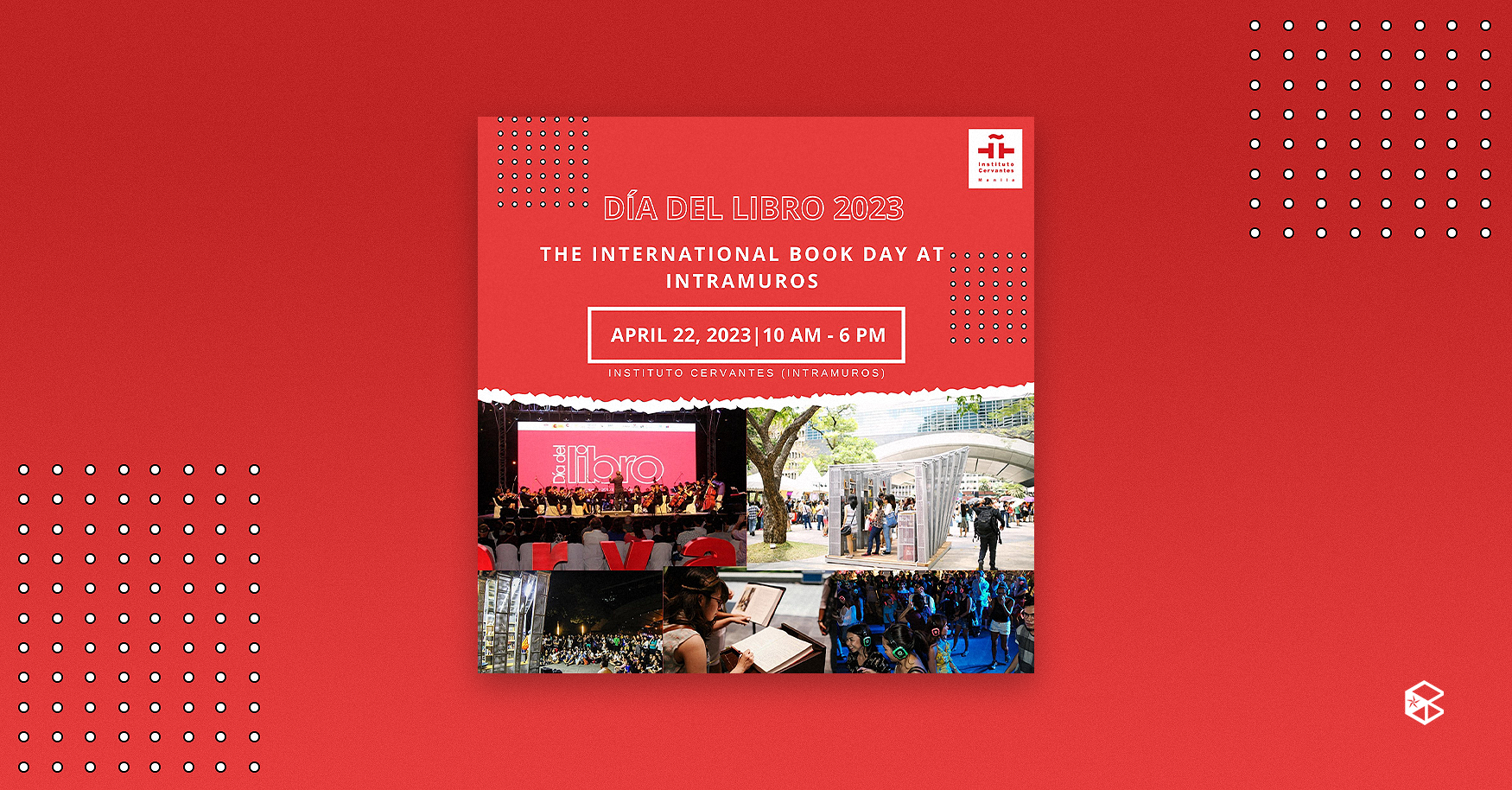Instituto Cervantes de Manila welcomed readers of all backgrounds to this year’s Dia del Libro (International Book Day) on April 22 in Intramuros City.
Beneath white-roofed tents that painted the brick road eskinita that is Calle Real, book merchants from renowned Manila publishers shared gleeful conversations with curious bibliophiles, proving that the heat index warnings that day were no match for the cross-cultural love for reading. True enough, even before setting foot inside Instituto Cervantes’ main building, Casa Azul, you would be greeted with a crowd speaking in different tongues. This is what makes Dia del Libro stand out from your usual book fair—it integrates Spanish culture, abiding by the various traditions actually practiced in the country during the holiday.
In navigating the fair, you would notice that visitors not only carried book-filled paper bags but also red (or orange) roses: this is because in Dia del Libro, if you decide to bring a book home, you are also given a rose alongside your purchase.
According to Europeana Foundation, the connection of roses and books to Dia del Libro is rooted in two respective events the Spanish honor on the same day: the feast day of Saint George and the simultaneous deaths of William Shakespeare and Miguel de Cervantes. Moreover, in Catalonia, Spain, the holiday is quite similar to Valentine’s Day. Traditionally, men offer roses to women to symbolize their love, while the women give them books in return, indicating “eternity.”
A rewrite of the past
Aside from indulging in the book market, visitors were also encouraged to (literally) leave a mark in history by joining in the customary Escribo el Quijote (I’m Writing Don Quixote)—wherein writers were given the chance to copy a fragment of Miguel de Cervantes’ Don Quixote de la Mancha by hand. In its completion, the fully handwritten manuscript is set to be kept in Instituto Cervantes’ library. Roses were again given to the writers as gratitude for their participation.
To further immerse visitors in Spanish traditions, Instituto Cervantes organized an open house for the neighboring Casa Manila (Manila House), a museum that lets you experience the lifestyle of a wealthy Filipino family during the late Spanish occupation in the country.
The event was also not short of Filihispanic poetry readings, a live music performance from local indigenous band Talahib People’s Music, and free Spanish language lessons.
All in all, the success of this year’s Dia del Libro could be attributed to the stimulating activities courtesy of Instituto Cervantes, such as the book talks, presentations, and signings individually hosted by various Filipino and Spanish authors.


